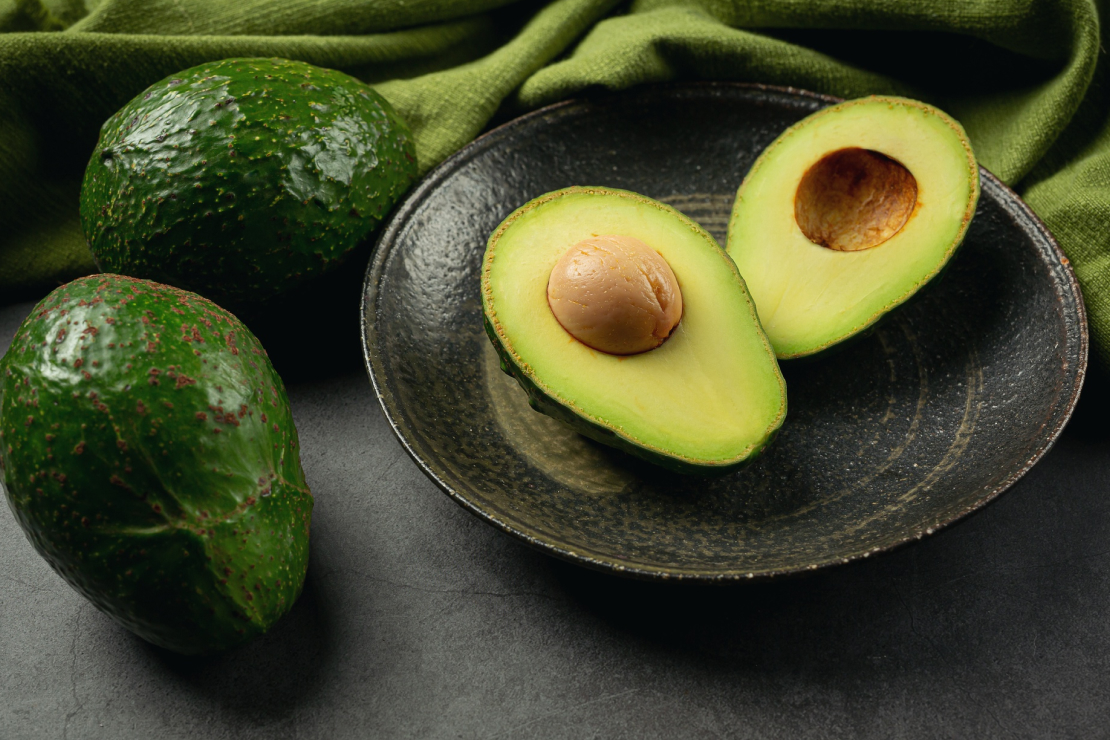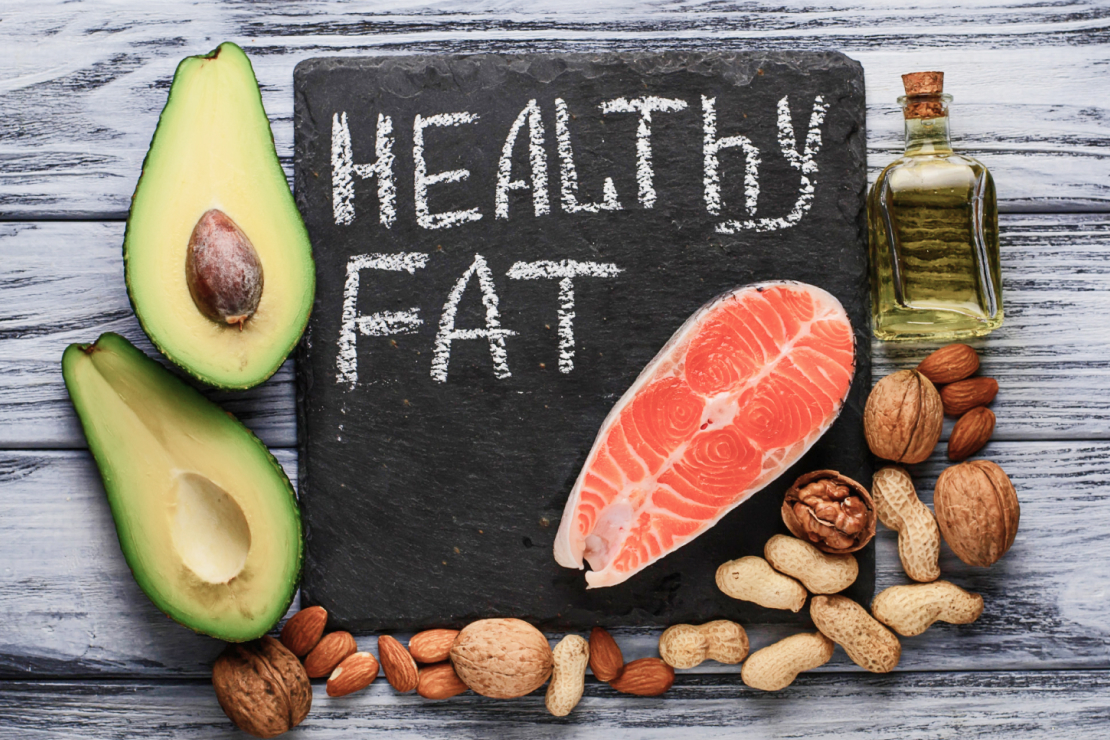Avocado vs. Almonds vs. Olive Oil: Which Healthy Fat is Best for Satiety and Heart Health?
Explore the benefits of avocado, almonds, and olive oil to determine which healthy fat source offers the most for satiety and cardiovascular well-being. A detailed comparison for optimizing your diet.
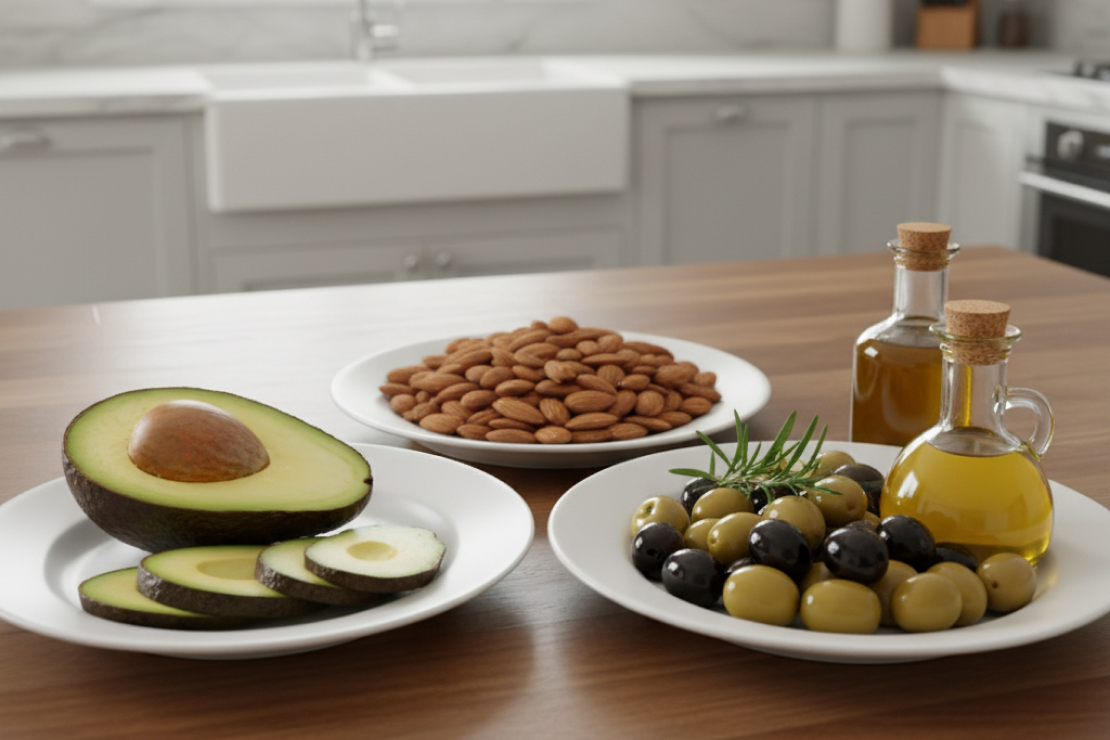
Table of Content
Introduction
Healthy fats are a vital component of any balanced diet, playing crucial roles in hormone production, nutrient absorption, and overall cellular function. Far from being the enemy, the right types of fats can significantly contribute to satiety, helping to manage appetite and support weight goals, while also offering profound benefits for heart health. But with so many excellent sources available, how do you choose the best one for your specific needs?
This article delves into a detailed comparison of three powerhouse healthy fat sources: avocado, almonds, and olive oil. We'll break down their unique fat profiles, explore their impact on satiety and cardiovascular well-being, and highlight their distinct micronutrient contributions. By understanding the nuances of each, you can make informed choices to optimize your diet for both fullness and a healthy heart.
Let's uncover which of these healthy fats might be your ultimate ally in achieving your health and wellness goals.
Comparison Overview
| Nutrient (per serving) | 1/2 Medium Avocado | 1 oz (28g) Almonds | 1 Tbsp Olive Oil |
|---|---|---|---|
| Calories | 160 kcal | 164 kcal | 120 kcal |
| Total Fat | 14.7g | 14.2g | 13.5g |
| Saturated Fat | 2.1g | 1.1g | 1.9g |
| Monounsaturated Fat | 9.8g | 9g | 9.9g |
| Polyunsaturated Fat | 1.8g | 3.5g | 1.4g |
| Fiber | 6.7g | 3.5g | 0g |
| Protein | 2g | 6g | 0g |
| Vitamin E | Moderate | High | Moderate |
| Potassium | High | Moderate | Low |
| Antioxidants | Good | Good | Excellent |
Evaluation Criteria
- Fat Profile: Breakdown of saturated, monounsaturated, and polyunsaturated fats.
- Satiety Impact: How effectively each food contributes to feeling full and reducing cravings.
- Heart Health Benefits: Specific compounds and their proven effects on cardiovascular health.
- Micronutrient Content: Presence of essential vitamins, minerals, and antioxidants.
- Versatility & Practicality: Ease of incorporation into daily meals and snacks.
- Calorie Density: Understanding the energy contribution per serving.
Avocado: The Creamy Superfruit
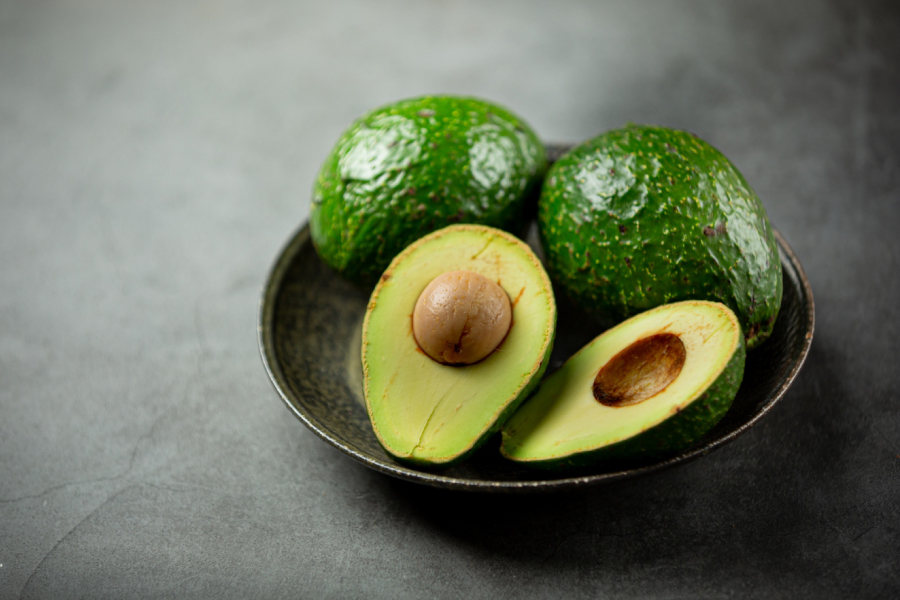
Overview
Avocado has soared in popularity as a healthy fat source, cherished for its creamy texture and impressive nutritional profile. Technically a fruit, it stands out for its high monounsaturated fat content, particularly oleic acid, which is renowned for its heart-healthy benefits. Beyond fats, avocados are packed with fiber, vitamins, and minerals.
Key Features
- Rich in monounsaturated fatty acids (MUFAs)
- High in dietary fiber (6.7g per 1/2 medium avocado)
- Excellent source of Potassium, Vitamin K, Vitamin E, and Vitamin C
- Contains antioxidants like lutein and zeaxanthin
| Pros | Cons |
|---|---|
|
|
Use Cases
Enhancing Satiety in Meals
Adding avocado to meals can significantly increase fullness, helping to reduce overall calorie intake later in the day.
- Mash into guacamole or spread on whole-grain toast
- Slice into salads or sandwiches
- Blend into smoothies for creaminess and healthy fats
Heart-Healthy Snacking
A convenient and delicious way to boost your intake of beneficial monounsaturated fats.
- Enjoy plain with a sprinkle of salt and pepper
- Pair with a source of lean protein for a balanced snack
- Use as a healthy substitute for mayonnaise or butter
Verdict
Avocado is a powerhouse of healthy fats, fiber, and micronutrients, making it an excellent choice for satiety and heart health, provided portion sizes are managed due to its calorie density.
Almonds: The Crunchy Nutrient Bomb
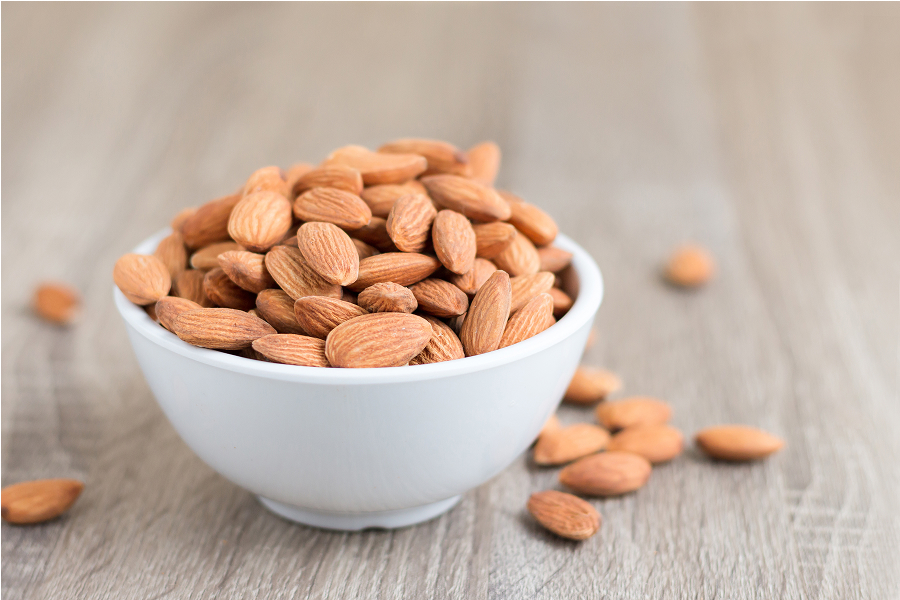
Overview
Almonds are a popular tree nut, celebrated for their satisfying crunch and dense nutritional profile. They offer a balanced mix of healthy fats, protein, and fiber, along with a remarkable amount of Vitamin E and magnesium. Almonds are a convenient and portable snack that can significantly contribute to satiety and heart health.
Key Features
- Good source of monounsaturated and polyunsaturated fats
- High in protein (6g per ounce) and fiber (3.5g per ounce)
- Excellent source of Vitamin E, Magnesium, and Manganese
- Contains antioxidants and plant compounds
| Pros | Cons |
|---|---|
|
|
Use Cases
On-the-Go Healthy Snacking
Almonds are perfect for curbing hunger between meals and providing sustained energy.
- Pre-portion into small bags to avoid overeating
- Combine with a piece of fruit for a balanced snack
- Choose raw or dry-roasted, unsalted almonds
Boosting Meal Nutrition
Add almonds to various dishes to enhance flavor, texture, and nutritional value.
- Chop and sprinkle over salads or oatmeal
- Blend into smoothies or homemade nut butter
- Use as a crunchy topping for yogurt or stir-fries
Verdict
Almonds are an excellent choice for a convenient, satiating snack that delivers a powerful punch of healthy fats, protein, fiber, and Vitamin E, making them a strong contender for both heart health and hunger management.
Olive Oil: The Liquid Gold of Healthy Fats
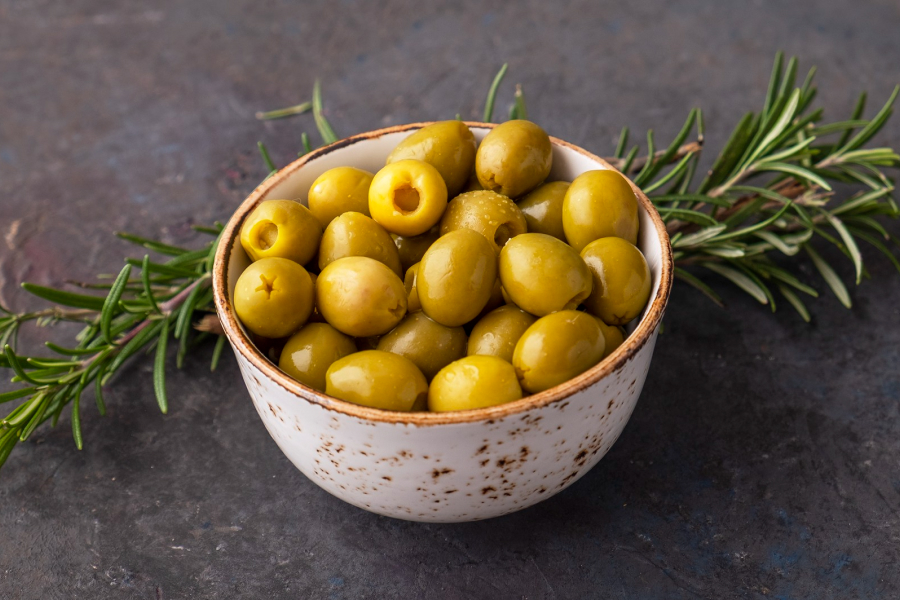
Overview
Olive oil, particularly extra virgin olive oil (EVOO), is a cornerstone of the Mediterranean diet and widely recognized for its profound health benefits. It is predominantly composed of monounsaturated fatty acids, along with a rich array of antioxidants. While it doesn't offer fiber or protein, its role in cooking and dressings makes it an indispensable source of healthy fats.
Key Features
- High in monounsaturated fatty acids (MUFAs), primarily oleic acid
- Rich in antioxidants, including polyphenols and Vitamin E
- Anti-inflammatory properties
- Enhances flavor and nutrient absorption in foods
| Pros | Cons |
|---|---|
|
|
Use Cases
Cooking & Food Preparation
The primary use of olive oil, enhancing flavors and providing healthy fats to cooked dishes.
- Use EVOO for low to medium heat cooking and finishing dishes
- Use regular olive oil for higher heat cooking
- Replace butter or other less healthy fats with olive oil
Salad Dressings & Dips
A fundamental ingredient for creating delicious and healthy salad dressings and dips.
- Combine with vinegar, herbs, and spices for homemade dressings
- Use as a dip for whole-grain bread or vegetables
- Drizzle over roasted vegetables or grilled fish
Verdict
Olive oil is essential for its unparalleled heart health benefits and antioxidant properties, making it a crucial component of a healthy diet, especially when used judiciously in cooking and dressings.
Summary
Choosing Your Champion Healthy Fat
- For Maximum Satiety & Fiber: Avocado stands out with its high fiber content alongside healthy fats, making it incredibly filling and beneficial for digestion.
- For a Balanced Nutrient Boost & Convenience: Almonds offer a great mix of healthy fats, protein, and fiber, plus a significant dose of Vitamin E, in a portable snack form.
- For Pure Heart Health & Antioxidants: Olive Oil, especially Extra Virgin, is a potent source of monounsaturated fats and powerful antioxidants, making it ideal for cooking and dressings.
Each of these healthy fat sources brings unique strengths to the table. The "best" choice often depends on your immediate dietary needs and how you plan to incorporate them into your meals. A diverse intake of all three will provide the broadest range of benefits.
| Category | Best Option | Why? |
|---|---|---|
| Satiety & Fullness | Avocado / Almonds | High fiber and healthy fats contribute to prolonged fullness. |
| Heart Health (Monounsaturated Fat) | Avocado / Olive Oil | Both are excellent sources of heart-healthy monounsaturated fats. |
| Fiber Content | Avocado | Highest fiber content, beneficial for digestion and blood sugar control. |
| Protein Boost | Almonds | Offers a significant protein contribution alongside healthy fats. |
| Antioxidant Power | Olive Oil | Rich in polyphenols and other antioxidants, especially Extra Virgin Olive Oil. |
| Versatility in Cooking | Olive Oil | Indispensable for cooking, dressings, and finishing dishes. |
| Snackability | Almonds | Convenient and portable for on-the-go healthy fat intake. |
| Micronutrient Density | Avocado | Provides a wide array of vitamins and minerals beyond just fats. |
Conclusion
Avocado, almonds, and olive oil are all exceptional sources of healthy fats, each offering a unique blend of benefits for satiety and heart health. Avocado provides a creamy, fiber-rich option that is incredibly filling, almonds offer a crunchy, nutrient-dense snack with protein and Vitamin E, and olive oil is a liquid gold, rich in heart-protective monounsaturated fats and antioxidants.
For optimal health and to leverage the full spectrum of benefits, incorporating a variety of these healthy fats into your diet is highly recommended. Pay attention to portion sizes, as all fats are calorie-dense, and use AI-powered tracking tools to ensure you're meeting your macro goals without overconsuming. By making smart choices with these healthy fats, you can significantly enhance your satiety, protect your heart, and support your overall well-being.
"Don't fear fat; embrace healthy fats. They are essential for satiety, nutrient absorption, and a thriving heart. Variety and moderation are your keys to success."
Start Your Health Journey Today
Download Macro Tracking AI and take control of your nutrition with the power of artificial intelligence.
Download on App Store
